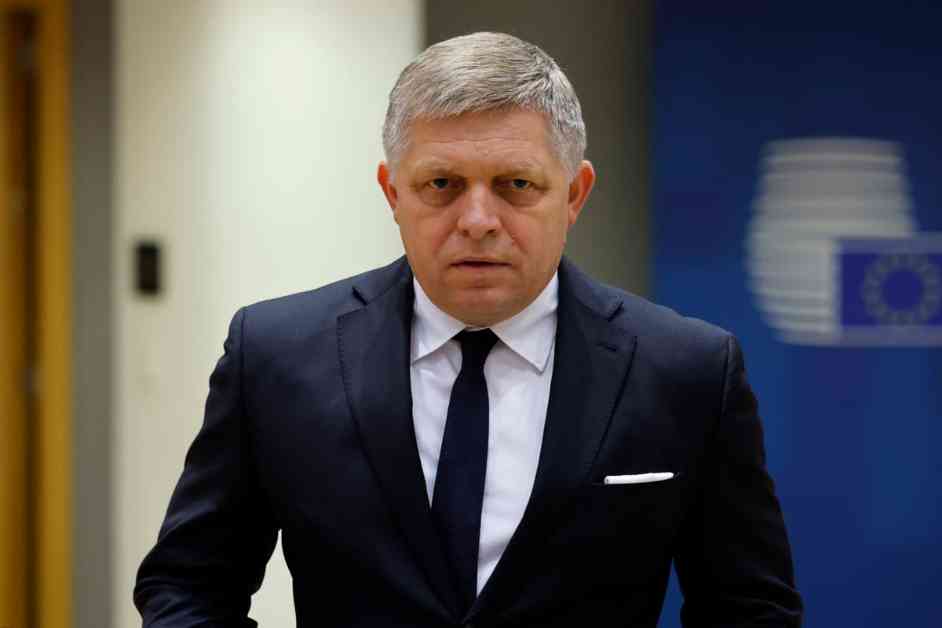Slovakia’s Prime Minister, Robert Fico, has expressed his displeasure with the UK Ambassador’s criticism of his recent interview with Russia’s state-owned television channel, Rossiya 1. Fico, who is currently in China, defended his media activities and asserted that Slovakia is not a colony of Britain. He accused Ambassador Nigel Baker of interfering in Slovakia’s sovereign foreign policy and called for him to stop.
In the controversial interview, Fico criticized Western support for Ukraine in its conflict with Russia, claiming that it only serves to prolong the war. He also accused European nations of not being interested in a peaceful resolution to the conflict. However, Ambassador Baker refuted these claims, stating that the quickest path to peace is the withdrawal of Russian troops from Ukraine.
Fico, who returned to power for the fourth time last year, has taken a pro-Russia and anti-American stance. He has halted Slovakia’s military aid to Ukraine, opposes EU sanctions on Russia, and opposes Ukraine’s entry into NATO. In a surprising statement, Fico expressed his willingness to attend a military parade in Moscow to commemorate the 80th anniversary of the end of World War II next year.
The Prime Minister’s interview has sparked criticism from Slovakia’s opposition and politicians in neighboring Czech Republic. Fico’s views on Russia’s actions in Ukraine are in stark contrast to the European mainstream, leading to tensions with other European nations.
The disagreement between Fico and the UK Ambassador highlights the complex geopolitical dynamics at play in Eastern Europe. Fico’s alignment with Russia and his criticism of Western support for Ukraine underscore the divisions within the region. The differing perspectives on the conflict reflect the broader challenges facing European unity and security.
As the situation continues to evolve, it will be crucial for leaders in the region to find common ground and work towards a peaceful resolution to the conflict in Ukraine. The international community will be closely watching how the tensions between Slovakia and the UK unfold, and how they may impact broader efforts to address the crisis in Eastern Europe.












